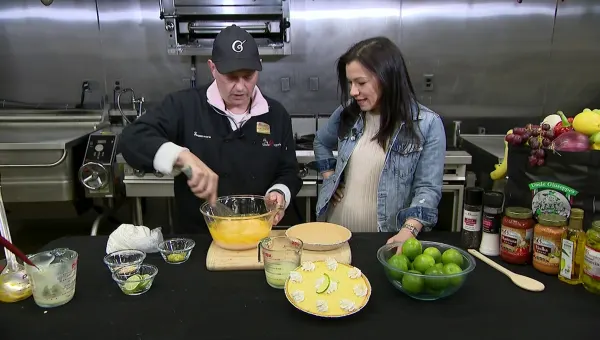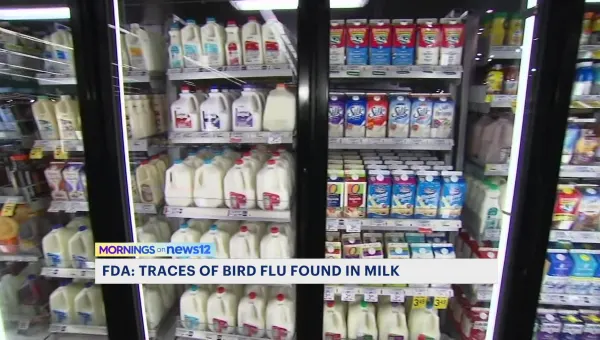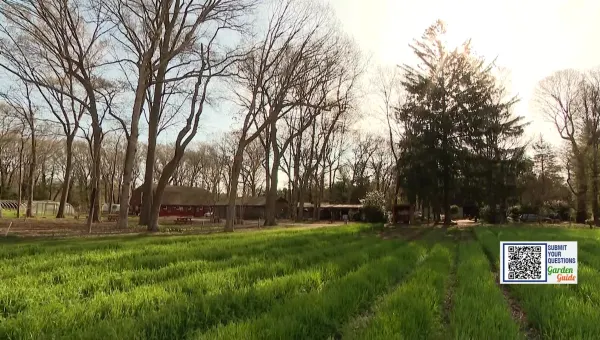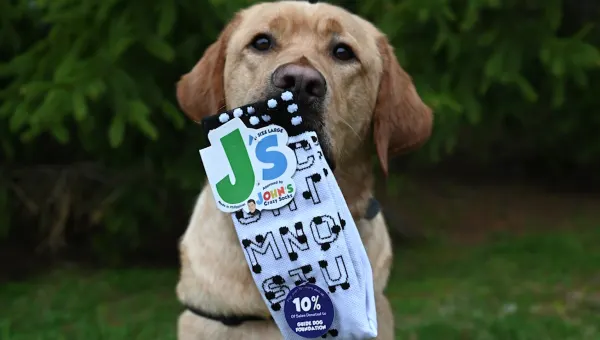Experts urge pet owners to watch what their furry friends eat to avoid holiday visits to animal hospitals
Veterinarians saw a spike in treating pets during and after the COVID-19 stay-at-home orders.
News 12 Staff
•
Nov 25, 2021, 4:31 AM
•
Updated 881 days ago
Share:
More Stories
2:34

Guide: Safety tips to help prevent home burglaries
50ds ago1:31

What's Cooking: Uncle Giuseppe's Marketplace's prime rib roast
133ds ago2:19

Guide: Safety measures to help prevent fires and how to escape one
198ds ago2:07

Tips on how to avoid confrontation with sharks while swimming in the ocean
282ds ago2:33

5 tips to prevent mosquito bites and getting sick from viruses
293ds ago2:39

NEWS 12 EXCLUSIVE: ‘He drove into the water.’ Car drives off dock in Patchogue; News 12 crew helps in the rescue
313ds ago2:34

Guide: Safety tips to help prevent home burglaries
50ds ago1:31

What's Cooking: Uncle Giuseppe's Marketplace's prime rib roast
133ds ago2:19

Guide: Safety measures to help prevent fires and how to escape one
198ds ago2:07

Tips on how to avoid confrontation with sharks while swimming in the ocean
282ds ago2:33

5 tips to prevent mosquito bites and getting sick from viruses
293ds ago2:39

NEWS 12 EXCLUSIVE: ‘He drove into the water.’ Car drives off dock in Patchogue; News 12 crew helps in the rescue
313ds agoExperts urge pet owners to watch their furry friends during the holidays when there's an increase in emergency visits at animal hospitals.
Veterinarians saw a spike in treating pets during and after the COVID-19 stay-at-home orders.
One in five households adopted a new pet last year, which meant two things: First, the shelters were emptier, and second, veterinarians were busier than ever.
"With us having to only see essential appointments for a little while, it really backlogged us with our normal appointments and our normal patients and clients," says Raritan Animal Hospital Manager Heidi Milano.
The increase in pet adoptions put a strain on the veterinary field this past year. And now added to that already backed up schedule, is the increase of emergency visits animal hospitals see around the holidays, starting as early as October. As families start to gather again for the holidays, animal hospitals say one of the biggest ailments they see usually involves something a pet ate.
"A lot of fatty foods, grease, gravy, bones from turkeys, pork chop bones... we get pancreatitis cases," Milano says.
And as we start decking the halls, it's less about food and more about holiday decorations that pets may ingest.
"Poinsettias, like toxic plants, tinsel from the tree, that kind of stuff also is a problem, especially for cats," Milano explains.
Milano also has advice for owners of other types of pets.
"Birds, you want to keep them out of drafts, they are susceptible to getting upper respiratory infections," she says. "Your reptiles and your turtles, also, keep them warm because they're cold-blooded animals."
Milano also says don't experiment with different types of food if you're not sure if your pets can eat it or not. Feed them what you know for sure they can eat and always consult your veterinarian.





